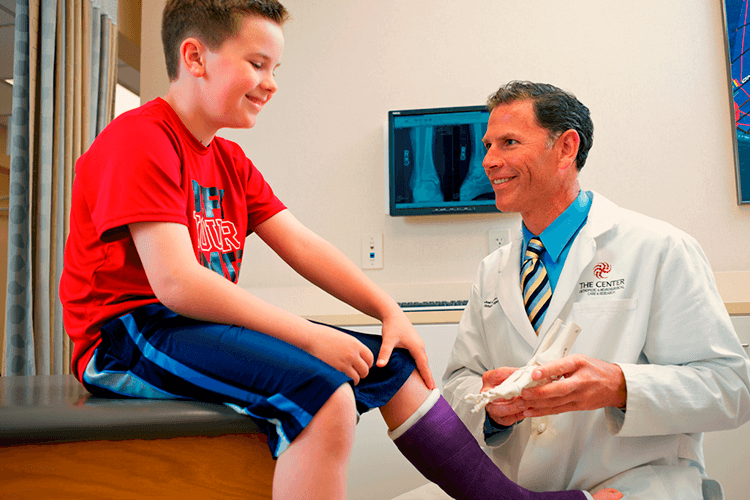Pediatric orthopedics is a specialized branch of medicine dedicated to the diagnosis and treatment of musculoskeletal conditions in children. It plays a vital role in ensuring that the growing bones and joints of young patients develop properly and remain healthy. In this article, we will explore the world of pediatric orthopedics, the conditions it addresses, and the importance of early intervention in caring for young patients.
Nurturing Healthy Growth
Pediatric orthopedics is a field of medicine that focuses on the unique musculoskeletal needs of children. This specialty encompasses a wide range of conditions, from congenital anomalies to growth-related issues, sports injuries, and trauma. Pediatric orthopedic specialists are dedicated to nurturing the healthy development of bones and joints in their young patients.
Common Conditions in Pediatric Orthopedics:
Congenital Malformations: Some children are born with musculoskeletal anomalies, such as clubfoot or hip dysplasia. Pediatric orthopedic specialists can diagnose and treat these conditions to ensure that affected limbs and joints develop correctly.
Growth Plate Injuries: Growth plates are areas of developing cartilage at the ends of long bones. Injuries to these plates can disrupt bone growth. Prompt diagnosis and treatment by a pediatric orthopedic specialist are crucial to prevent long-term issues.
Scoliosis: Scoliosis is a condition characterized by an abnormal curvature of the spine. Early detection and intervention can prevent the progression of scoliosis and minimize the need for surgery.
Sports Injuries: Children and adolescents are often active in sports. Injuries, such as fractures, ligament tears, and overuse injuries, can affect their musculoskeletal health. Pediatric orthopedic specialists are skilled in diagnosing and treating these sports-related conditions.
Infections and Inflammatory Conditions: Infections and inflammatory conditions can affect the bones and joints in children. Prompt diagnosis and treatment are essential to prevent complications and preserve musculoskeletal health.
Importance of Early Intervention:
Early intervention in pediatric orthopedics is essential for several reasons:
Preventing Long-Term Issues: Many musculoskeletal conditions, if left untreated, can lead to long-term problems. Early intervention can address these issues while a child’s body is still developing, increasing the chances of a full recovery.
Minimizing Pain and Discomfort: Untreated conditions can cause pain and discomfort in young patients. Early diagnosis and treatment help alleviate these symptoms and improve a child’s quality of life.
Supporting Normal Growth: Many pediatric orthopedic conditions can disrupt normal bone and joint growth. Timely intervention helps ensure that a child’s musculoskeletal system develops as it should.
Optimizing Treatment Outcomes: Some conditions, like scoliosis, have better treatment outcomes when diagnosed and treated early. Regular check-ups with a pediatric orthopedic specialist can catch these conditions in their infancy.
The Role of Pediatric Orthopedic Specialists:
Pediatric orthopedic specialists are healthcare professionals with advanced training in the diagnosis and treatment of musculoskeletal conditions in children. They understand the unique needs of young patients and are skilled in offering both surgical and non-surgical treatment options.
Pediatric orthopedics is a specialized field that plays a vital role in ensuring the healthy growth and development of a child’s musculoskeletal system. By addressing a wide range of conditions, from congenital anomalies to injuries and infections, pediatric orthopedic specialists provide the expert care necessary to nurture the well-being of young patients. Early intervention in pediatric orthopedics is a key to preventing long-term issues, minimizing discomfort, and optimizing treatment outcomes, ultimately ensuring that children grow with strong, healthy bones and joints.

